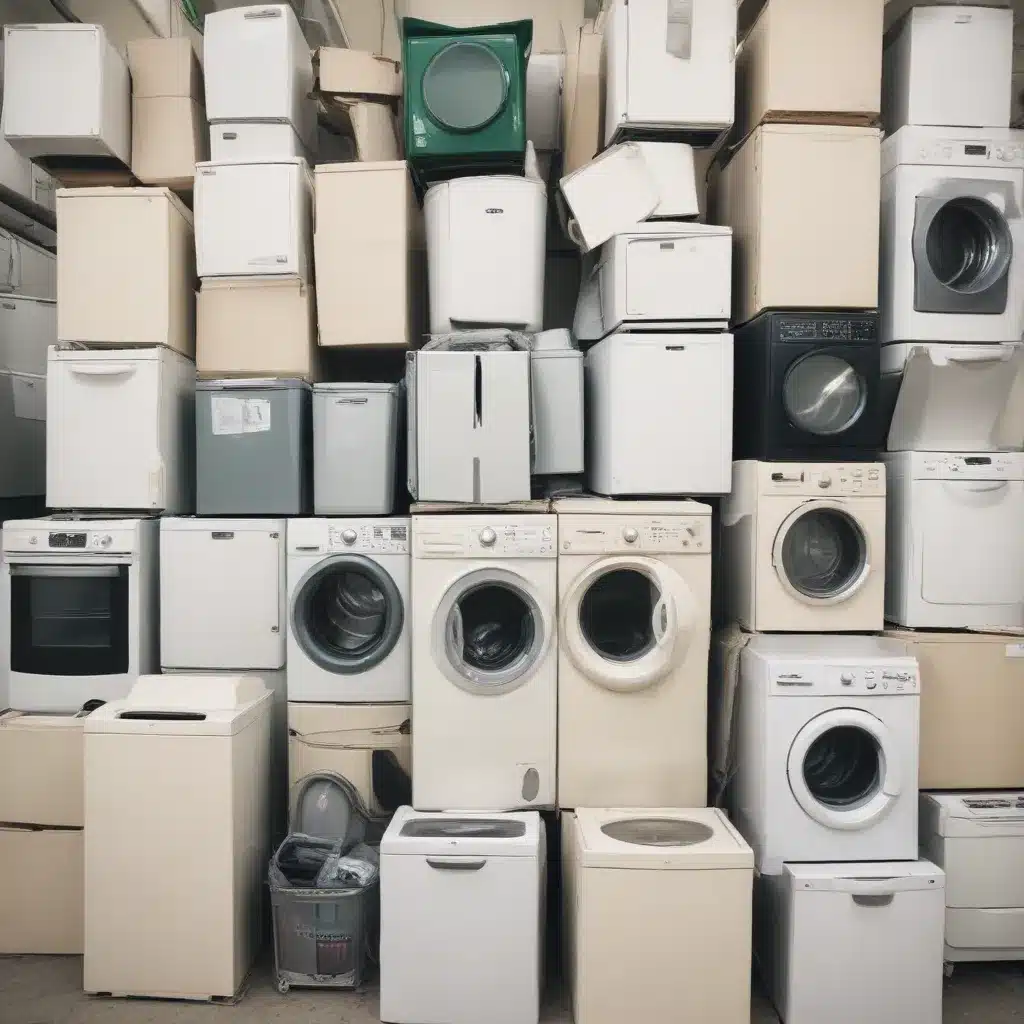
The Importance of Responsible Appliance Disposal
As a junk removal specialist with years of experience in the Philadelphia area, I’ve seen firsthand the impact that improper appliance disposal can have on the environment. It’s a sobering reality that many homeowners and businesses are unaware of – the environmental toll of simply tossing that old refrigerator or washing machine into a landfill.
But I’m here to tell you that there is a better way. By embracing appliance recycling, we can significantly reduce our carbon footprint and play a vital role in building a cleaner, more sustainable future for our community.
The Hidden Costs of Appliance Waste
When you think about the lifecycle of an appliance, it’s easy to overlook the energy and resources that go into its production, transportation, and eventual disposal. From the raw materials extracted to the manufacturing process, the environmental impact is substantial.
And when that aging appliance ends up in a landfill, the story doesn’t end there. As the appliance decomposes, it releases harmful greenhouse gases like methane and carbon dioxide into the atmosphere, further exacerbating the climate crisis.
The Benefits of Appliance Recycling
But it doesn’t have to be this way. By choosing to recycle your old appliances, you can make a tangible difference in reducing your carbon footprint and contributing to a more sustainable future. Here’s a closer look at the benefits:
Reduced Greenhouse Gas Emissions
When you recycle your appliances, the materials are repurposed or broken down in an environmentally responsible manner. This prevents the release of greenhouse gases that would occur if the appliances were simply discarded in a landfill. Experts estimate that all recycling between 2020 and 2050 could reduce emissions by 6.02 gigatons of carbon dioxide – the equivalent of removing more than one billion cars off the street for one year.
Energy Conservation
The manufacturing and transportation of new appliances requires a significant amount of energy. By recycling your old appliances, you’re not only reducing waste, but you’re also conserving the energy that would have been used to produce new ones. This translates to substantial energy savings and a smaller environmental footprint.
Material Recovery and Reuse
Appliance recycling allows for the recovery and reuse of valuable materials like metals, plastics, and glass. These materials can then be incorporated into new products, reducing the demand for virgin raw materials and the associated environmental impact of extraction and processing.
Landfill Diversion
When you recycle your appliances, you’re keeping them out of landfills, where they would take up valuable space and contribute to the growing problem of waste management. By diverting these items from landfills, you’re helping to preserve the environment and reduce the strain on our waste disposal systems.
Navigating Appliance Recycling in Philadelphia
Now that you understand the importance of appliance recycling, you’re probably wondering, “Where do I even start?” As a junk removal specialist in the Philadelphia area, I’m here to guide you through the process.
Locating Recycling Programs
The City of Philadelphia offers a comprehensive appliance recycling program that makes it easy for residents to responsibly dispose of their unwanted appliances. Through partnerships with organizations like Goodwill’s GreenWorks, the city provides convenient drop-off events and in-home pickup services for a wide range of appliances, including refrigerators, freezers, air conditioners, and more.
These programs not only ensure your appliances are recycled in an environmentally responsible manner but also offer rebates and incentives to encourage participation. It’s a win-win for both you and the environment.
Preparing Your Appliances for Recycling
Before you schedule a pickup or drop off your appliances, there are a few steps you can take to ensure a smooth and efficient recycling process:
-
Disconnect and Unplug: Make sure to disconnect any electrical or gas connections and remove any doors or lids from the appliance to prevent accidents or injuries during transportation.
-
Clean and Decontaminate: Thoroughly clean the appliance and remove any remaining food, liquids, or hazardous materials. This helps ensure the safe and proper handling of the item during the recycling process.
-
Document the Details: Keep a record of the make, model, and approximate age of the appliance. This information can be helpful for the recycling facility and may even qualify you for additional rebates or incentives.
By taking these simple precautions, you can help ensure your appliances are recycled in a safe and environmentally responsible manner.
Embracing a Sustainable Mindset
Appliance recycling is just one piece of the sustainability puzzle, but it’s a crucial one. As a junk removal specialist, I’ve seen the impact that our actions can have on the environment, and I firmly believe that each of us has a responsibility to do our part.
It’s not just about recycling your old appliances, though that’s an important start. It’s also about being mindful of your energy consumption, opting for energy-efficient models when it’s time to replace your appliances, and encouraging your friends, family, and neighbors to join you in this effort.
Together, we can make a real difference in reducing our carbon footprint and building a cleaner, more sustainable future for our community. So, let’s roll up our sleeves and get to work – one appliance at a time.
Conclusion: A Call to Action
As you’ve seen, the impact of responsible appliance disposal goes far beyond simply clearing out clutter in your home or business. It’s about taking an active role in protecting our planet and creating a more sustainable future for generations to come.
I encourage you to take the first step today by exploring the appliance recycling programs available in the Philadelphia area. Whether it’s scheduling a pickup, dropping off your old appliances at an event, or simply spreading the word to your neighbors, every action counts.
Together, we can make a real difference in reducing our carbon footprint and building a cleaner, more sustainable community. So, let’s get started – the future is ours to shape.